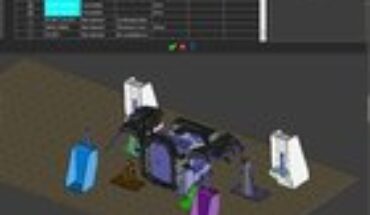Input tax credit (ITC) is a crucial aspect of the Goods and Services Tax (GST) system that allows businesses to offset the tax they pay on inputs by claiming credit. When it comes to the food and beverage industry, understanding the nuances of claiming ITC on these items under GST is essential for businesses to manage their tax liabilities effectively. This article explores the eligibility criteria, documentation requirements, restrictions, calculations, and recent updates related to claiming ITC on food and beverages under GST. By delving into these key aspects, businesses in the food and beverage sector can navigate the complexities of GST regulations and optimize their tax efficiency.
What are GST and ITC?
GST (Giggles, Sighs, and Taxes) is a revolutionary tax system streamlining India’s tax levies. Input Tax Credit (ITC) is like the holy grail of GST, allowing businesses to offset the tax they pay on inputs with the tax they collect on outputs. It’s like a tax rebate, but cooler.
Why is ITC important in the GST system?
ITC is the backbone of the GST system. It prevents the cascading effect of taxes (imagine taxes piling up like a Jenga tower) and ensures that businesses don’t end up paying tax on tax on tax. In simpler terms, ITC ensures your cheeseburger costs less than a gourmet meal.
Eligibility criteria for claiming ITC on food and beverages
Definition of food and beverages under GST
Food and beverages include anything you can munch on or slurp, from a cheesy pizza to a frothy cappuccino. Essentially, anything that tickles your taste buds and fills your belly qualifies.
Conditions for eligibility to claim ITC on food and beverages
To claim ITC on food and beverages, businesses need to ensure they’re not using them for personal consumption or throwing lavish food parties for their pet poodles. The food and beverages should be used for business purposes only, not for hosting fancy tea parties.
Also Read: What are the Requirements for Claiming ITC on Free Gifts?
Documentation and record-keeping requirements for claiming ITC
Types of documents required for claiming ITC
Keep your invoices, bills, and receipts handy like they’re your BFFs. These are your tickets to claiming ITC on your food and beverage purchases. Without them, the taxman might frown harder than a toddler who lost their favorite toy.
Importance of maintaining accurate records for ITC claims
Accurate record-keeping is crucial when it comes to claiming ITC. Think of it as your tax superhero cape—it saves the day by proving that you’re not secretly munching on gourmet chocolates while pretending it’s a business expense.
Restrictions and conditions on claiming ITC for food and beverages
Blocked credits for certain types of food and beverages
Not all food and beverages are created equal in the eyes of the tax gods. Some, like luxury foods or those consumed on a personal yacht, might not be eligible for ITC. Sorry, no caviar on the company’s dime.
Conditions for partial or full ITC claim on food and beverages
If your food and beverages are crucial for your business operations (like coffee for your sleepy employees or pizza for brainstorming sessions), you might be able to claim partial or full ITC. Just remember, no claiming ITC for that super expensive truffle ice cream you bought for your CEO’s birthday bash.
Also Read: Benefits and Rights of Regular Taxpayer: Access to Input Tax Credit and Refunds
Calculation and utilization of ITC on food and beverages
| Category | Conditions for ITC Eligibility | Utilization Rules | Relevant Section/Rule |
| Food and Beverages (General) | Not eligible for ITC if expenses are for personal consumption or employee welfare. | Cannot utilize for personal consumption expenses. | Section 17(5) of the CGST Act |
| Food Provided as Part of Employee Package | ITC is available if it’s mandatory by law to provide such services to employees (e.g., under labor laws). | ITC can be utilized if services are essential and mandated by law. | Section 17(5) and clarifications |
| Outdoor Catering Services | ITC not available unless provided to employees as part of a contractual obligation. | Can be used if catering is provided under legal obligation. | Section 17(5) of the CGST Act |
| Food Supplied by Restaurants | No ITC available on GST paid for food or beverages supplied by restaurants or similar venues. | Not applicable, as ITC is restricted. | Section 17(5)(b)(i) |
| Conference and Event Catering | ITC not available if the catering services are not directly related to the core business. | Not allowed; expenses are considered for non-core activities. | Section 17(5) |
| ITC on Hotels (Food and Beverages) | Available if services are provided as part of business events, not for personal use. | Eligible if food/beverage expenses are for business purposes. | ITC allowed for business expenses |
| Training Programs (Food and Beverages) | ITC available if food and beverages are provided during official training or skill development programs. | Utilization allowed for registered business programs and training. | Section 17(5) Exception |
| Food and Beverages Supplied to Customers | ITC allowed if food and beverages are part of services supplied to customers in the ordinary course of business. | Utilization allowed if directly related to business activities. | Section 16 of the CGST Act |
| Conferences (Business) | ITC is available if the event is organized for business promotion or client engagement, and food is provided. | Can be utilized for business-related event expenditures. | Section 16 with supporting proofs |
| Food and Beverage for Employee Welfare | Not eligible if food is provided merely as part of the employee welfare program. | ITC restricted for general welfare without legal mandate. | Section 17(5) |
Methods for calculating ITC on food and beverages:
Calculating input tax credit (ITC) on food and beverages under GST is like solving a math puzzle but with more flavor and less frustration. Businesses can claim ITC on the GST paid for inputs like raw materials, packaging, and other services used in the production of food and beverages. The amount of ITC can be calculated by subtracting the tax paid on inputs from the tax collected on the output supplies.
Utilization of ITC for payment of GST liabilities:
Once you’ve got your hands on that sweet ITC, it’s time to put it to good use. Businesses can utilize the ITC collected on food and beverages to pay off their GST liabilities. Think of it as using a coupon to get a discount on your tax bill. It’s a win-win situation—you get to save money, and the taxman gets his share.
Impact of ITC rules on businesses in the food and beverage industry
| Business Activity | ITC Eligibility | Impact on Business | Requirements & Compliance | Example |
| Employee Meals & Refreshments | Not eligible if for general employee welfare. | Increases operational costs. | Differentiate between business and welfare expenses. | Office pantry meals. |
| Mandatory Employee Catering (by Law) | Eligible if legally mandated. | Reduces tax burden. | Proof of legal obligation. | Factory meals for safety. |
| Training and Development Programs | Eligible if linked to business. | Reduces training costs. | Training records and attendance sheets. | Corporate training refreshments. |
| Food & Beverages Supplied to Customers | Eligible if integral to business. | Reduces effective tax rate. | Proof of sale or consumption as part of business. | Hotel restaurant meals. |
| Conference & Business Events | Eligible if for business purposes. | Reduces event costs. | Records of business purpose and attendees. | Corporate seminar food. |
| Food and Beverages for Resale | Eligible if for resale. | Lowers tax burden. | Purchase and sale records. | Grocery retailer stock. |
| Marketing and Promotional Activities | Generally not eligible. | Increases promotional costs. | Clear record separation. | Free food samples. |
| Food Served at Conferences & Seminars | Eligible if linked to business operations. | Reduces meeting expenses. | Documentation of business purpose and attendees. | Client meeting lunch. |
| Food and Beverages Consumed on Site | Not eligible for on-site consumption. | Increases operating costs. | Documentation of consumption patterns. | On-site manufacturing meals. |
| Food Expenses for Business Meetings | Eligible if for business purposes. | Reduces meeting expenses. | Records of business purpose and attendees. | Client meeting lunch. |
| Food Used in Events & Promotions for Restaurants | Eligible if linked to restaurant business. | Reduces marketing costs. | Records of food used as a marketing tool. | Restaurant tasting samples. |
| Outdoor Catering Services | Not eligible unless legally mandated. | Adds to catering costs. | Legal documentation for mandatory catering. | Outdoor company event catering. |
Challenges faced by businesses in claiming ITC on food and beverages:
Navigating the world of ITC rules in the food and beverage industry can be like trying to find a needle in a haystack (or a cherry in a fruit salad). Businesses often face challenges in claiming ITC due to complex regulations, documentation requirements, and restrictions on certain categories of food and beverages. It’s like a culinary obstacle course but with tax forms instead of hurdles.
Advantages and disadvantages of ITC rules for the food and beverage sector:
ITC rules can be a double-edged sword for businesses in the food and beverage sector. On the one hand, claiming ITC can lead to cost savings, improved cash flow, and increased competitiveness. On the other hand, compliance issues, restrictions on certain items, and the risk of audits can give businesses heartburn. It’s a delicate balance of reaping the benefits while avoiding the pitfalls.
Recent updates and changes in ITC regulations for food and beverages under GST
Overview of recent amendments in ITC rules for food and beverages:
Just when you thought you had the ITC game figured out, along comes a plot twist in the form of regulatory changes. Recent updates in ITC regulations for food and beverages under GST have brought about amendments in eligibility criteria, documentation requirements, and input categories. It’s like adding a new ingredient to your recipe—you have to adapt and adjust to stay compliant.
Implications of regulatory changes on businesses in the food and beverage industry:
For businesses in the food and beverage industry, staying up-to-date with regulatory changes is as essential as salt in a recipe. Changes in ITC regulations can impact pricing strategies, profit margins, and overall business operations. It’s like a taste test—you need to stay alert and agile to navigate the ever-changing landscape of tax laws and regulations. In conclusion, navigating the intricacies of claiming input tax credit (ITC) on food and beverages under GST is essential for businesses to streamline their tax processes and maximize cost savings. By adhering to the eligibility criteria, maintaining accurate documentation, and staying updated on regulatory changes, businesses in the food and beverage industry can effectively leverage ITC to their advantage. Embracing a proactive approach towards ITC compliance not only ensures regulatory adherence but also contributes to enhanced financial management and operational efficiency in the dynamic landscape of GST.
Also Read: Recent Updates and Changes in ITC Rules and Regulations for E-invoices
FAQs
-
Can all food and beverage industry businesses claim input tax credit (ITC) under GST?
Yes, all food and beverage industry businesses can claim ITC under GST, subject to certain conditions and restrictions.
-
What are the restrictions on claiming ITC for certain foods and beverages?
ITC is generally not available for food and beverages consumed within the premises of the business or served to customers. However, ITC can be claimed on food and beverages purchased for resale or used as ingredients in other products.
-
How can businesses calculate and utilize ITC on food and beverages effectively?
Businesses can calculate ITC by subtracting the ITC available on exempt goods and services from the total ITC claimed. The utilized ITC can be set off against the output tax liability.
-
Are there any recent updates or changes in ITC regulations specifically impacting the food and beverage sector under GST?
There have been no recent updates or changes in ITC regulations specifically impacting the food and beverage sector under GST. However, it is always advisable for businesses to stay updated on any changes in GST laws and regulations.




